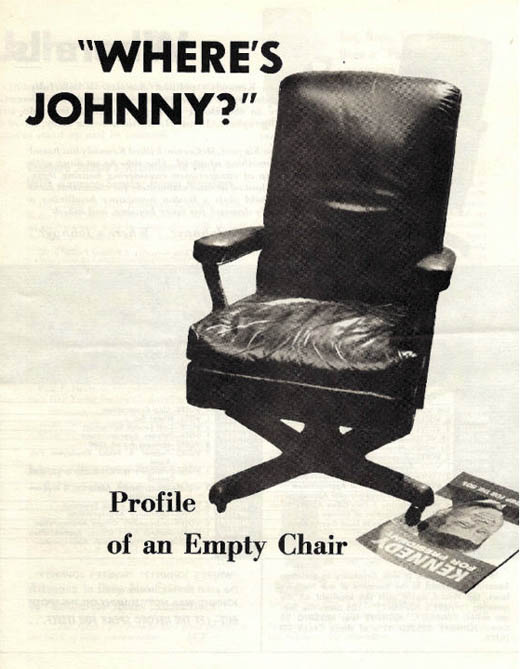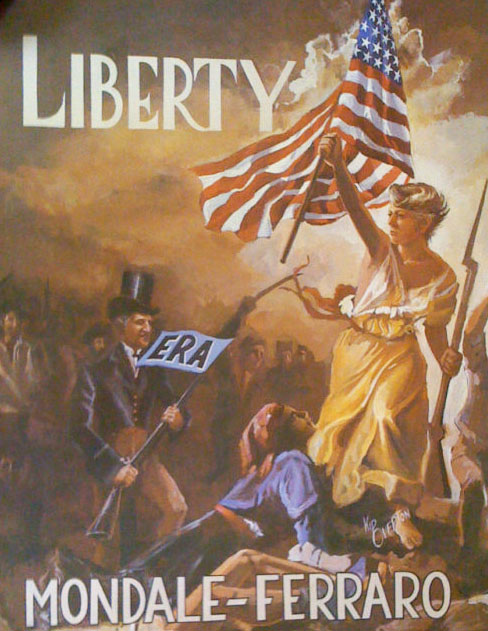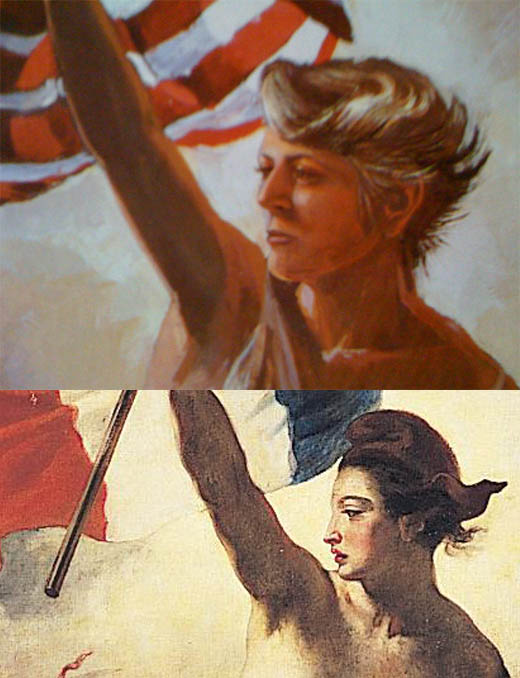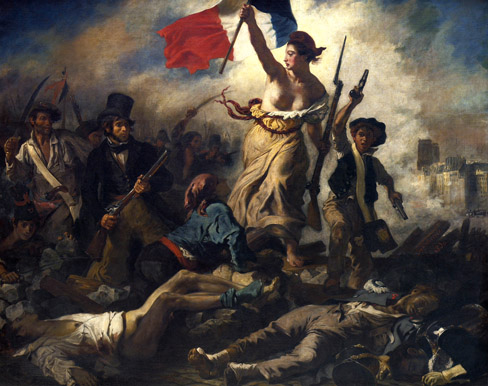Between Former IMF chief Dominique Strauss-Kahn, Former Gov. Arnold Schwarzenegger, Former VP Nominee and Presidential Candidate John Edwards and now Rep. Anthony Weiner, sex scandals are breaking like gangbusters. Weiner's misconduct is making more headlines because of his subsequent coverup and the fact that he still holds public office, but another (DSK) involves the charge of rape and two (Arnold & Edwards) involve children out of wedlock -- much more serious in the scheme of things.
Sex scandals have long been exploited for political purposes, beginning with Thomas Jefferson and Sally Hemmings, but none were publicly acknowledged by the culprit until Grover Cleveland did so in the presidential election of 1884.
While Mayor of Buffalo in 1874, Cleveland had had an out-of-wedlock affair with Maria Crofts Halpin, a widow at the time, who then bore a son. Apparently Cleveland wasn't the only man to have had an slept with Halpin in those days, but she pressed him for financial support and he agreed to provide it -- secretly. The boy was put into an orphan asylum, per Cleveland's wishes and the whole ordeal remained hush-hush until ten years later when Grover Cleveland became the Democratic Nominee for president in 1884.
While vague rumors of Halpin and the love-child swirled, Republicans conspired to make an issue of the affair, hoping to drive religious votes from the democratic column. Declaring the election about "morals" and not "politics", pamphlets detailing the "seduction" of Halpin were circulated, calling Cleveland a "leper," amongst other things. Cleveland advised his supporters to tell the truth, but his allies moved to defame Halpin anyway, portraying her as a "designing woman," an accusation that only forced Halpin to make a public statement about the affair, deepening the controversy:
My duty to those relatives, who's kind assurances of love and sympathy and confidence have reached me, compels me to make a public statement and denial of many of the statement which have been made public concerning me and my character and actions while in Buffalo... I will not at this time detail my subsequent sufferings, and the birth of our boy on September 14th, 1874, but I will say that the statement published in the Buffalo Telegram in the main is true. There was not and never any doubt as to the paternity of our child...
Cleveland's detractors rallied with the slogan "Ma Ma, where's my Pa?" but Cleveland's order to "tell the truth" was widely publicized and his supporters shifted gears from denouncing Halpin to praising Cleveland's conduct after the "preliminary offense," calling him responsible and even honorable. The controversy subsided and Cleveland won election in November.

But there was one difference between Cleveland's scandal and those taking place now: Grover Cleveland was a bachelor.
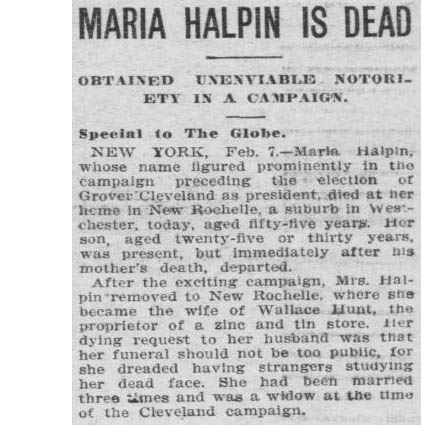
 Friday, June 17, 2011 at 10:14PM
Friday, June 17, 2011 at 10:14PM 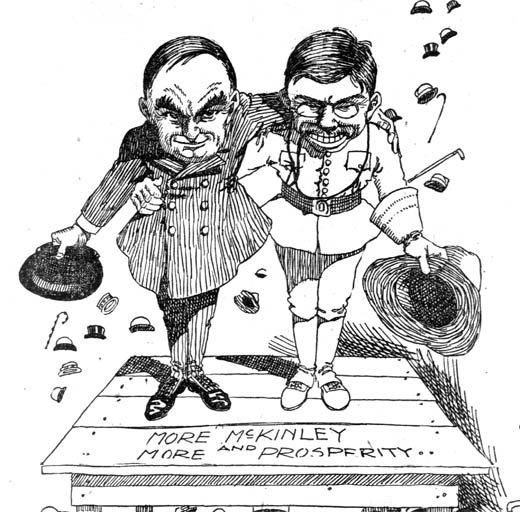
 1900,
1900,  Mark Hanna,
Mark Hanna,  Teddy Roosevelt,
Teddy Roosevelt,  VP,
VP,  William McKinley
William McKinley 



